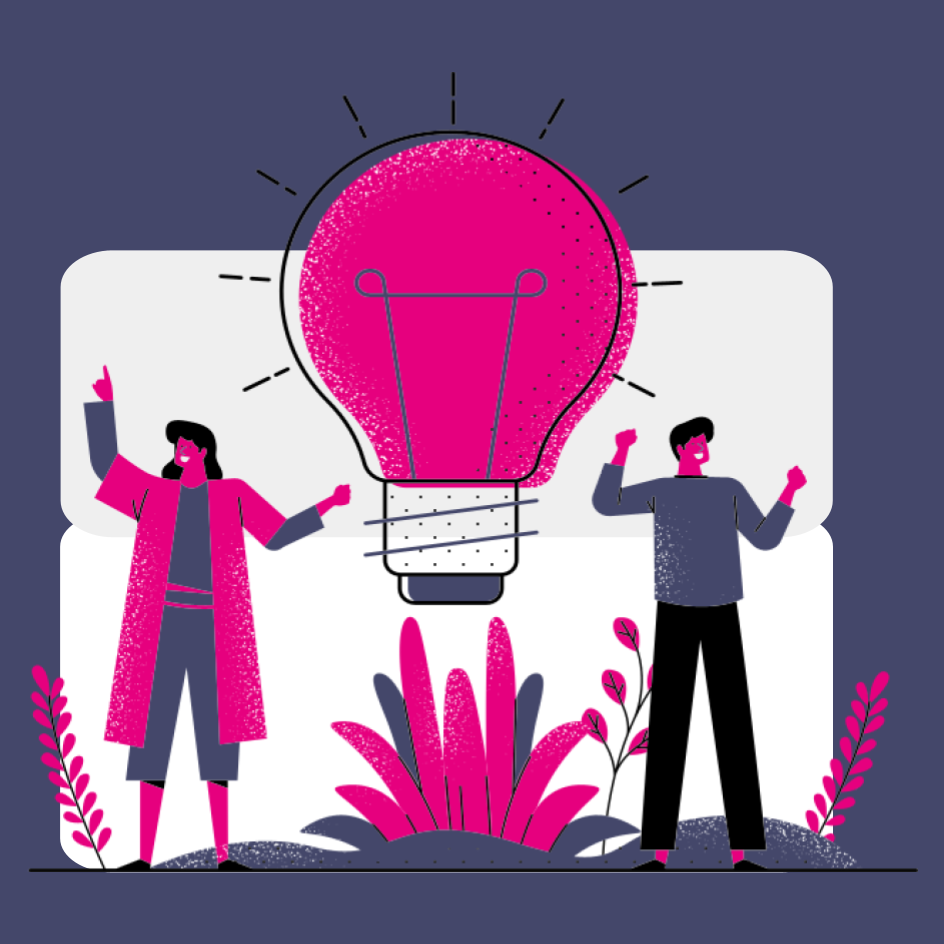Blog
Harnessing the Power of Employment: Insights and Innovations from Mploydia


The Future of Work: Top Trends in Digital Workplace Strategies for 2024
Introduction
The world of work is constantly evolving, and with the ongoing pandemic, the digital workplace has become the new norm. While organisations adapt to hybrid working models, it's crucial to stay updated on the latest trends in digital workplace strategies, as you embark on your professional journey. With the ever-evolving landscape of work, especially in light of post-pandemic workplace configurations, it's essential to understand the emerging strategies, skills, and technologies that are shaping the modern workplace. In this blog post, we will explore the top trends in digital workplace strategies for 2024, the digital skills required for hybrid working, and the new technologies that are being implemented for successful remote work experiences.
As remote and hybrid working continue to gain traction, digital skills are becoming more important than ever before. In 2024, employees need to be proficient in various digital tools and platforms to collaborate effectively with their remote colleagues. According to a survey by McKinsey, 87% of executives believe that upskilling their workforce is a top priority for their organisations. Digital skills such as virtual communication, online collaboration, data analysis, and digital literacy will be in high demand. Employers are going to invest in training programs to ensure their employees have the necessary skills to thrive in the digital workplace.
Let us take a brief look at what could be trending in 2024 in the digital workspace.
Employee Tracking for Remote Work Productivity
Employee tracking has become a hot topic in the digital workplace as organisations aim to ensure productivity and accountability among remote workers. Tools and software that enable employee monitoring, such as time tracking, activity monitoring, and performance analytics, are being implemented to track employee productivity and engagement. According to a survey by Gartner, by 2024, 30% of organisations will use employee tracking technologies to monitor their remote workforce. While it can raise concerns about privacy and trust, when used ethically and transparently, employee tracking can provide valuable insights and feedback to improve remote work efficiency.
Cloud-Based Collaboration for Seamless Remote Work
Cloud-based collaboration tools have been a game-changer for remote work, and this trend is set to continue in 2024, enabling teams to collaborate seamlessly across different locations and time zones. Platforms like Microsoft Teams, Google Workspace, and Slack are being widely adopted for virtual meetings, document collaboration, and team communication. According to a report by Flexera, 94% of organisations are currently using cloud-based collaboration tools, and this trend is expected to continue in 2024. Being proficient in using these tools and understanding how to collaborate effectively in a virtual environment is a crucial digital skill for hybrid working.
Automation and AI for Streamlining Work Processes
Automation and AI technologies are being increasingly implemented in the digital workplace to streamline work processes and eliminate repetitive tasks. Robotic Process Automation (RPA), machine learning algorithms, and chatbots are being used to automate routine and manual tasks, allowing employees to focus on higher-value work. Organisations are leveraging automation and AI to streamline repetitive tasks, enhance productivity, and improve employee experience. For instance, chatbots are being used to handle routine HR inquiries, virtual assistants are automating scheduling and administrative tasks, and AI algorithms are analysing data to provide insights for decision-making. According to a study by Forrester, by 2024, automation will eliminate 20% of repetitive tasks, freeing up more time for employees to focus on strategic and creative work. Familiarity with these technologies and the ability to adapt to automated workflows will be a valuable digital skill for the hybrid workplace.
Mobile Phone Technology for Remote Work Connectivity
Mobile phone technology has become an integral part of remote work, allowing employees to stay connected and productive on the go. Mobile apps for communication, project management, and productivity are being used to connect with teams and work efficiently from anywhere. Mobile apps and platforms such as project management apps, video conferencing apps, and document collaboration apps are empowering employees to work on the go. According to a survey by Global Workplace Analytics, 50% of the global workforce is set to be mobile by 2025. Being proficient in using mobile apps for work-related tasks and understanding how to leverage mobile technology for remote work will be crucial in the digital workplace.
Sustainability and Eco-Friendly Workplace Strategies
Sustainability and eco-friendly workplace strategies are gaining traction in the digital workplace as organisations strive to be environmentally responsible. Strategies such as paperless initiatives, energy-efficient technologies, and remote work policies to reduce commuting are being implemented to reduce the carbon footprint of the workplace. According to a study by Cone Communications, 76% of employees consider a company's environmental and social commitments when deciding where to work. Young recruits who are environmentally conscious and understand sustainable workplace practices will be in high demand in the digital workplace of 2024.
AI and Machine Learning for Task Automation
AI and machine learning technologies are being used to automate repetitive tasks in the digital workplace, improving efficiency and reducing manual errors. Intelligent automation tools that can analyse data, make decisions, and perform tasks autonomously are being implemented to streamline workflows. According to a report by McKinsey, organisations that have adopted AI and automation technologies have seen a 20-30% increase in productivity. Understanding how to work with AI and machine learning tools, and leveraging them to automate repetitive tasks, will be a valuable digital skill for young recruits in the hybrid workplace of 2024.
Gamification of Intranets for Employee Motivation
Gamification has emerged as a powerful tool to motivate and engage employees in the digital workplace. In 2024, organisations are expected to leverage gamification techniques in their intranets to boost employee motivation. Gamification involves incorporating game-like elements, such as points, badges, leaderboards, and challenges, into non-gaming contexts, such as the intranet. This can create a sense of competition, achievement, and fun, which can increase employee engagement and productivity. According to a study by Talentsoft, 71% of employees feel more motivated when gamification techniques are applied in their workplace. Organisations can use gamification in their intranets to encourage remote employees to complete tasks, collaborate, and participate in learning and development programs, ultimately improving their overall experience in the digital workplace. Understanding how gamification can be used to motivate and engage employees in the digital workplace will be a valuable skill for young recruits to enhance their productivity and job satisfaction.
Comprehensive Knowledge Bases for Remote Workers
As remote work becomes more prevalent, having comprehensive knowledge bases and knowledge management systems is crucial for efficient remote collaboration. These systems enable employees to access information, documents, and resources easily, even when working remotely. Organisations are implementing knowledge bases and intranets that provide a centralised repository of information to support remote workers. According to a survey by Deloitte, 82% of organisations believe that effective knowledge management is important for remote workers. Understanding how to navigate and contribute to comprehensive knowledge bases will be a vital digital skill for young recruits in the hybrid workplace.
Online Group Activities for Brainstorming and Productivity
Collaboration and innovation are critical in the digital workplace, and in 2024, organisations are expected to leverage online group activities to encourage creativity and productivity among remote teams. Virtual group activities, such as brainstorming sessions, team-building exercises, and online workshops, are being used to foster collaboration and productivity in the remote work environment and to facilitate creative thinking and problem-solving. According to a study by Harvard Business Review, employees who collaborate effectively are five times more likely to perform at a high level. Virtual collaboration tools that enable real-time brainstorming, whiteboarding, and idea sharing are being implemented to facilitate creativity and innovation. According to a study by Gartner, 63% of organisations have introduced virtual team-building activities to enhance remote collaboration. Understanding how to effectively participate in and facilitate online group activities will be a valuable skill required in order to excel in the digital workplace of 2024.
Conclusion
The digital workplace landscape is evolving rapidly, and organisations are upping their game to stay abreast of the latest trends to thrive in this new normal. AI and digital transformation are the new keywords as are employee experience and knowledge management. Acquiring and honing these digital skills will be essential to thrive and excel in the modern workplace. So, welcome to the new digital and hybrid workplace! Embrace the digital transformation, stay updated with the latest trends, and continuously upskill yourself to stay ahead in the digital workplace of 2024 and beyond!
Next Steps
Check out our affordable Advanced Employability Course to learn more about digital skills and how to apply them in the workplace.
© 2024 Mploydia is a trading name of Innovatus Leadership Consulting Limited, a company registered in England and Wales at 2nd Floor, 4 Finkin Street, Grantham, Lincolnshire, NG31 6QZ.

